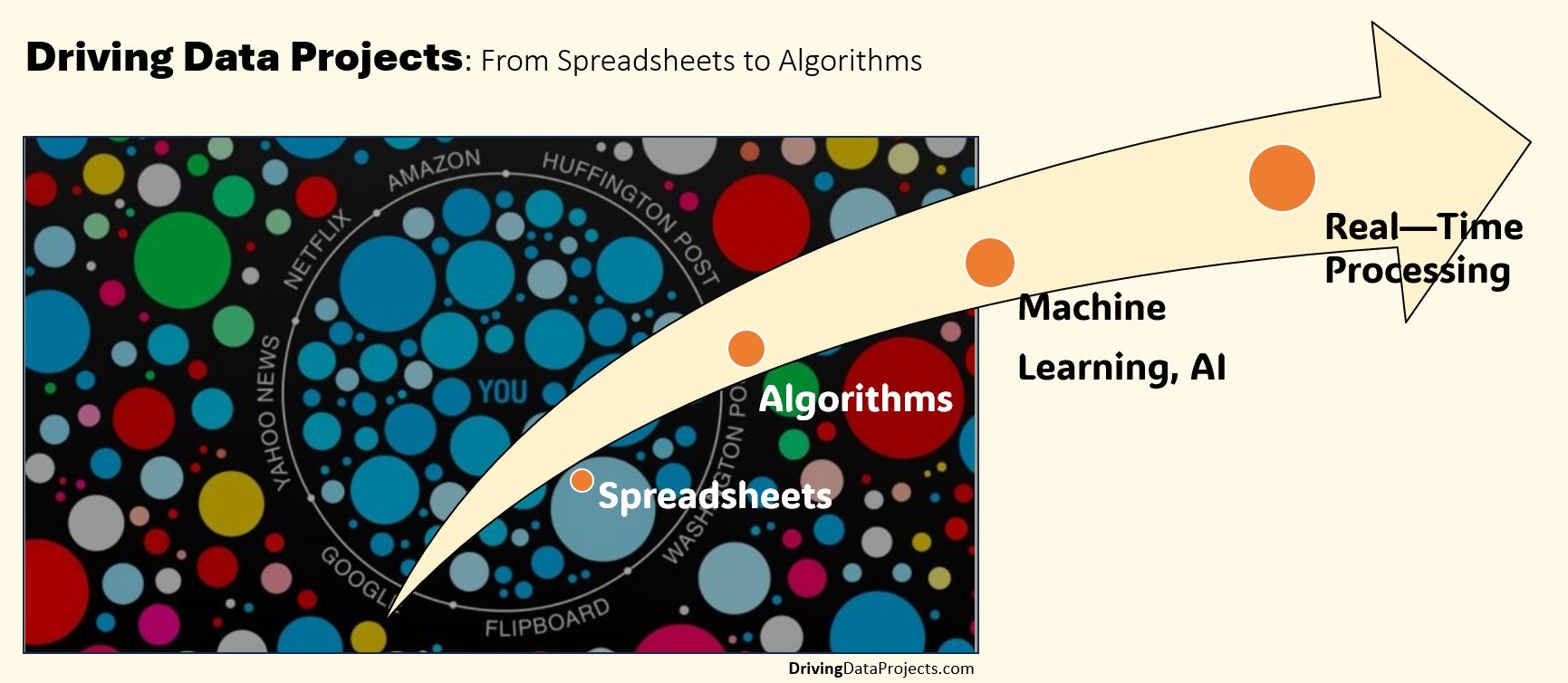Generative AI vs. Predictive AI: Why the Investment Gap Doesn’t Reflect Real Value
The AI Investment Paradox Generative AI is dominating headlines, while predictive AI quietly powers businesses behind the scenes. Despite delivering far greater returns in efficiency and cost savings, predictive AI receives nearly the same level of investment as its flashier counterpart. Why? The answer lies in perception: generative AI dazzles with its creative outputs, while predictive AI quietly drives results. Yet for businesses seeking measurable ROI, predictive AI remains the unsung hero.
Data Trend: From Spreadsheets to Algorithms
The transition from traditional spreadsheets to sophisticated data management and analysis algorithms represents a significant evolution that has revolutionized how businesses process and leverage information. Algorithms have reshaped the landscape of data-driven decision-making. Facebook's filter bubble is an early example of a machine learning system individualizing the user experience based on user patterns.
Countdown: Book Excerpt Chapter 3
Until an organization is willing to invest in its data capabilities, aligning data resources to answer complex business questions will be like riding a bicycle to chase a Formula One racer and never catching up. Scoping project opportunities well is about building enough trust to eventually scale resources. While a single project manager can accomplish some initiatives, most data projects require multi-disciplinary resources to execute.
Countdown: Book Excerpt Chapter 2
Book Excerpt: While a fully funded budget that supports data as a service is an integral part of a data transformation’s financial picture, few are fully staffed or funded. Three-quarters of executives confirm their organization now has some form of data strategy (however rudimentary), but a paltry 16% say they have the skills and capabilities necessary to deliver it.[1] Even though the average staffing budget is growing yearly, finding the skills and capabilities to execute data projects is becoming harder and harder.
Countdown: Book Excerpt Chapter 1
Book Excerpt: Data has traditionally been managed by a combination of information technology (IT), Operations, and Finance. Over the last ten to fifteen years, the chief data officer (CDO) role has come onto the executive scene. While not yet a universal title, the role of the CDO started by reporting through these functions and is beginning to be considered separate.





